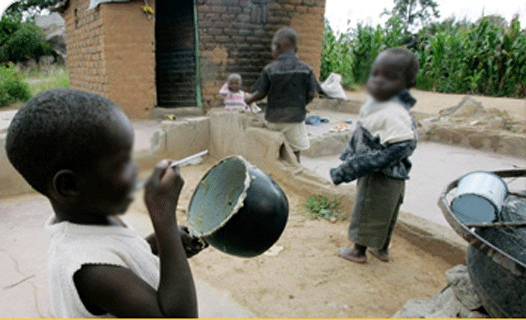
THERE has been an increasing number of children being admitted at Mpilo Central Hospital suffering from malnutrition as hunger and poverty take a toll among ordinary citizens.

NQOBANI NDLOVU STAFF REPORTER
Malnutrition is caused by a poor diet or lack of food and leads to reduced physical and mental development during early years of childhood.
It also causes death and is described by the World Health Organisation (WHO) as the gravest single threat to global public health.
Mpilo Hospital medical director Wedu Ndebele confirmed that scores of children had been admitted at the institution suffering from malnutrition although he could not readily divulge statistics.
“The affected children admitted at Mpilo are from Bulawayo and other areas outside the city,” he said.
“The disease is all year round and is most prevalent from October. However, the numbers (of the affected) tend to go down after the harvest season as people will now be having food.”
- Chamisa under fire over US$120K donation
- Mavhunga puts DeMbare into Chibuku quarterfinals
- Pension funds bet on Cabora Bassa oilfields
- Councils defy govt fire tender directive
Keep Reading
Some analysts said the increase in cases of malnutrition confirmed the widespread hunger and poverty faced by the country’s poor majority.
“It’s a sign of the rampant poverty that is prevalent in the country due to failure by the government to address the economic crisis. Children are suffering from malnutrition because most families have incomes way below the poverty datum line and have barely enough to purchase essential foods,” said Zibusiso Dube, programmes officer of the Bulawayo Progressive Residents’ Association.
“Furthermore, the government’s social welfare programmes are failing to ease the burdens of poor people.”
Dube said the closure of Bulawayo industries had a bearing and “the government should urgently address Zimbabwe’s economic woes. The government should also engage with NGOs (non-governmental organisations) and other stakeholders to ensure that poor families get assistance in the form of cash hand-outs or food hampers,” he said.
Beloved Chiweshe weighed in saying this was a wake-up call for the government to urgently respond to the hunger, poverty and socioeconomic crisis afflicting the majority.
“People don’t eat slogans and manifestos and blueprints like ZimAsset as they are not nutritional or dietary supplements. People are hungry, they need food; people are poor they need jobs; people are diseased they need medication.
“These are the key challenges our people are facing. Politicians should refocus their political lenses outside their political parties and work for the betterment of the people,” Chiweshe noted.
According to the United Nations World Food Programme, the disease currently accounts for nearly 25% of child deaths and stunted growths in the country.
The United Nations Food and Agricultural Organisation recently said close to 90% of children in Nkayi and Lupane in Matabeleland North suffered from stunted growth as a result of poverty, lack of food or a poor diet altogether.










